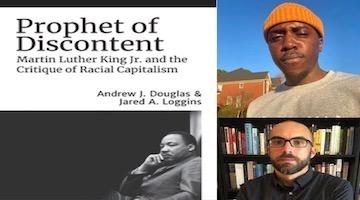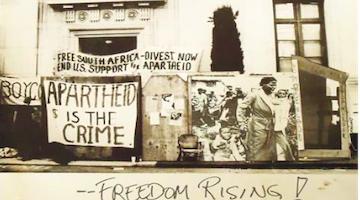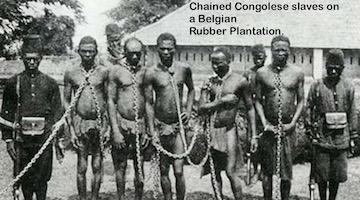A significant portion of sports franchise wealth can be traced directly to the oppression and displacement of Black and Brown bodies.
“The Black athlete has a unique platform to not only raise awareness about these issues but to foster the type alternative grassroots organization-building.”
As a die-hard and longtime Los Angeles Laker fan, I was certainly happy about the outcome of the NBA season and am optimistic about the new season. On the other hand, there is a side of me that wishes the brief athlete protest in the wake of the shooting of Jacob Blake in Kenosha, Wisconsin would have continued. With the killing of George Floyd, Breonna Taylor and Aubrey Ahmed still fresh in the consciousness of the public psyche, the Blake shooting, for one moment, seemed to be the tipping point for Black athletes so much so that they refused to play. For about a 48-hour period, they had the very foundations of the capitalist sports structure shaking in its boots.
And then they stopped, in no small part due to the intervention of Barak Obama. It was a classic example of the Black mis-leadership class talking them down to surrender the one piece of leverage they had over ownership and that was the withholding of their labor.
My question is, what was gained?
“For about a 48-hour period, they had the very foundations of the capitalist sports structure shaking in its boots.”
I will concede that it was a massively successful get out to vote campaign, which in essence was the recruitment bidding for the Democratic Party and likely help defeat Donald Trump.
I am also reasonably sure that it will lead to a boost in dollars for the non-profit industrial complex which has a far better record at recycling such dollars than it does in effectively tackling the issues it claims to address.
For some, this was enough. I am not among those.
I cannot identify any other return that Black athletes secured with their protest that are likely to address the issue of police brutality. For many, a tangible demand would be to remove quarterback Colin Kaepernick from being blackballed from the National Football League. It was his courageous stand along with then teammate Eric Reid that sparked the current wave of protest. It was clear that was not secured when the Denver Broncos lost all three of their quarterbacks to COVID-19 protocols and they still would not call him.
“A tangible demand would be to remove quarterback Colin Kaepernick from being blackballed from the National Football League.”
I’m sure some are saying now that I am being too hard on the athletes. Afterall, they are well paid, and could have simply kept quiet. Furthermore, many were previously apathetic about voting and this effort politically engaged them like never before.
To that I say it is not merely about their intent. I don’t doubt their intent. I do insist that intent should not be conflated with concrete results.
By that I mean that, though I believe folks should vote, I do not believe that the conditions and factors that led to all of the afore mentioned incidents of police brutality can be addressed via electoral politics. Furthermore, the Black athlete has a unique platform to not only raise awareness about these issues but to foster the type alternative grassroots organization-building that can help to effectively address such issues.
Still, some have become desensitized to athlete protest and insist that sports franchises are not the source of the oppression of Black and Brown bodies.
“Intent should not be conflated with concrete results.”
It is here where the backdrop to the story of Freddie Gray is relevant. It was his killing that sparked the uprisings in Baltimore in 2015.
Gray grew up in Baltimore housing projects most of which were contaminated by lead poisoning in the paint which undermines cognitive development, especially in children. Though lead was banned by federal law in 1978, it had already been used on many urban housing projects. In 1997, over 1200 children under the age of six were poisoned and nearly 8000 were found to have elevated levels of lead poisoning, to include Gray and Koryn Gaines who would also be a victim of police violence. According to her mother, Rhanda Dormeus, Gaines had four to five times the levels of lead deemed healthy.
Gray and many of the other youth and families would be represented by an attorney named Peter Angelos. Angelos would accumulate the bulk of his wealth representing the victims, overwhelmingly Black, of asbestos and or lead poisoning and would use that wealth to buy the Baltimore Orioles.
This is neither new, nor exclusive to Black folks. In 1959, ground was broken in a Los Angeles community called Chavez Ravine over the objections of the majority Latino residents. The original rationalization was for the construction of public housing. That housing never materialized. Instead, the recently arriving owner of the Los Angeles Dodgers purchased the land for pennies on the dollar to construct Dodger Stadium which is still the home of the world champion Dodgers. Hundreds of Latinos were forcibly removed from their homes and displaced.
“Angelos would accumulate the bulk of his wealth representing the victims of asbestos and or lead poisoning.”
A more recent example was the gentrification process in Brooklyn to make way for the construction of the Barclay Center which is the home of the National Basketball Association New York Nets. Thousands of Black and Latino residents were displaced by this process. Insult to injury was the fact that the public relations front person for the project was none other than rapper Jay-Z. His reward: he was allowed to buy 1.5% ownership of the Nets. In other words, he came cheap.
The significance of the arenas or stadiums is that after the actual athlete labor, it is typically the most valuable asset of a sports franchise. In the case of the Dodgers, since their stadium’s opening in 1962, it has led the National League in attendance 33 years including the past eight consecutive seasons. In the case of the Nets, it’s New York, location, location, location!
I say all of this to insist that the basis for the Black athlete’s protest is not merely anecdotal. It is much more direct than being descendants of slavery or the fact that a large number of them are from the very over-policed neighborhoods where the brutality is most likely to take place. The fact is that a significant portion of sports franchise wealth can be traced directly to the oppression and displacement of Black and Brown bodies.
It is on this basis that we should continue to push Black athletes to play a role in our movements for justice regardless of how compromised they may be by the allures of their place within the capitalists’ system. As they learn more, I am confident that they will do more. We need not rely on the likes of a Charles Barkley or the role model he refuses to be. But the would-be Colin Kaepernick’s need to know we have their backs!
The writer is a Maryland based freelance sportswriter, scholar and activist and a member of the Black Alliance for Peace.
COMMENTS?
Please join the conversation on Black Agenda Report's Facebook page at http://facebook.com/blackagendareport
Or, you can comment by emailing us at comments@blackagendareport.com



















